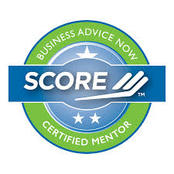|
As a Strategy Rockstar, I’ve seen it all - from the entrepreneurs who are crushing their small business goals to the ones who are struggling, and everything in between. It’s frustrating, especially when we don’t know what it is we did wrong. As business owners, we are often too close to our business to see the mistakes we’re making, which is why it can help to bring in a Strategy Rockstar who has, not only years of experience helping entrepreneurs reach their business goals, but who can also bring in that outside perspective to help identify the small business strategy mistakes you might be making. Here are some of the most common mistakes entrepreneurs make. Not Having a Team for Your Small Business Marketing Strategy
Not Identifying Your Target Audience as Part of Your Small Business Marketing StrategyOne of the biggest mistakes entrepreneurs make, especially when they’re just starting out, is saying they can work with “anyone”, which tells me they haven’t identified their target audience yet. I understand that a lot of small business owners are afraid to focus on a niche because they’re afraid it means excluding prospects who don’t fit into that niche, in fact the opposite is true. If you try to attract everyone, you end up attracting no one.
The same goes for your small business marketing strategy. Once you’ve clearly identified your target audience, you can create content catered to them and distribute it in the right places to make sure it gets in front of them. Without a clear definition of your target audience, your small business marketing strategy will struggle to attract anyone because it will be too broad to be relevant to anyone. Not Being Consistent with Your Small Business StrategiesNot being consistent with their efforts is one of the most crucial mistakes entrepreneurs make because consistency really is the key to success. I often talk about how I initially grew my business by making phone calls to prospects on a daily basis. Then a family member got sick and a lot of my time was taken up in caring for them, and I let those phone calls fall by the wayside. I wasn’t consistent in my business and my income suffered as a direct result. Now I have a system in place so I can be sure to spend some time making those phone calls, even if it’s just a few minutes here and a few minutes there, so I can grow my business no matter what I’m dealing with in my personal life. The same is true of my marketing. When I was trying to do everything myself, I wasn’t always consistent with it, and things often fell through the cracks. Now that I have a team handling a lot of my marketing efforts for me, my marketing efforts are much more consistent, and they’re getting much better results. Not Following Up
By proactively reaching out to prospects, you are taking control of your business and your income. So, while you absolutely need to implement and maintain a small business marketing strategy, don’t make the mistake of assuming everyone who sees your marketing efforts will take the next step towards working with you. Instead, it’s important to recognize that sometimes you need to be the one who reaches out to remind them of all the ways you can help them with their business. Whether you’ve just started a new business and you’re not sure where to start, or you’ve been at this for a while and you’re wondering why your business isn’t growing, I can help. You can schedule your FREE clarity call with me now to see how a Strategy Rockstar can help you achieve your goals.
0 Comments
Whether you’re a nonprofit leader, or you’re in a leadership role of a different kind of organization, there’s a lot resting on your shoulders. People are looking to you to set an example and guide them towards achieving the organization’s goals, so if you feel overwhelmed, that’s OK. Take a deep breath and read these tips to learn how to be a better nonprofit leader. Get the Right People on Your Team to Be a Better Nonprofit LeaderIn order to be an effective nonprofit leader, you have to be able to trust your team, and that starts with making sure you have the right team. Not only does this mean they need to have the right qualifications for their job, but it also means they need to share the ideals of your nonprofit organization. Do they believe in the organization’s mission? Keep in mind that skills can always be acquired, but passion is harder to teach. If someone doesn’t have the necessary skill level for a particular position, but they’re eager to help, bring them on board and either find someone who can teach them the skills they need to do the job or teach them yourself. Get to Know Your Team to Be a Better Nonprofit LeaderGetting to know your team is the best way to build a rapport with them so you can trust them with just about anything - including doing their jobs to the best of their abilities. Knowing your team on a personal level will also enable you to put them in positions you might not have otherwise put them in. For example, if you have a graphic designer on your team who also has a history working in IT, you’ll know you can call them the next time a volunteer has trouble logging onto a computer or your printer goes on the fritz. Keep in mind that this goes both ways. You need to get to know your team, but you also need to let them get to know you because that’s the best way to get them to trust you enough to rely on you and to come to you whenever there’s an issue that needs your attention. Take Care of Yourself to Be a Better Nonprofit Leader
Make a To-Do List and Keep It Updated to Be a Better Nonprofit Leader
Build and Maintain Relationships in Your Role as a Nonprofit Leader
Get Help as a Nonprofit Leader from a Strategy RockstarIn addition to getting support from your local community, most executives also find it beneficial to get support from a business coach. As someone who has decades of experience helping nonprofits increase their efficiency and their fundraising, both from the inside and as a consultant, I am ideally suited to support you in your role as a nonprofit leader. Just schedule your FREE consultation to get started.
Almost everyone wishes there were more hours in the day, and that goes double for entrepreneurs and small business owners. When you’re trying to build a business from the ground up, there are so many things you have to put in place and different aspects of your business you have to juggle that getting everything done can feel like an impossible task. Yet I still see a lot of small business owners sabotaging their work by insisting they can’t start until everything is in place, or they can’t launch a new program until it’s perfect. Nothing is ever perfect, so why do we insist on setting impossibly high goals for ourselves in our business and refuse to move forward until those goals are met? For some reason, perfectionism seems to go hand in hand with entrepreneurship. Only certain people tend to catch the entrepreneurial “bug”, and while not all of them are perfectionists, there does seem to be a lot of crossover between the two. Maybe it’s because, as entrepreneurs, our identities are almost indistinguishable from our businesses. That can make us afraid to release anything for our business that isn’t just right because if it fails, we tend to take it very personally. But guess what? If you never launch that program. If you never publish that book. Then you’ve chosen the certainty of failure over the possibility of failure. That can feel safer, but it’s also holding you back, so let’s talk about how to overcome perfectionism so you can get more done. Give Yourself a Deadline to Get More Done
project instead of procrastinating, it will also force you to overcome perfectionism and launch it instead of reviewing it a thousand times. Get an Accountability Partner to Get More DoneIf you’re not sure you can force yourself to launch your project when you say you will, get someone who will hold you accountable to that deadline. It might be a business partner, a coach, or even a friend or family member. You can even make it interesting by promising to take them out to dinner if you don’t reach your goal. Or give them your phone and don’t let them give it back until you’ve achieved a certain amount. The point is to get them to help motivate you to get more done. Identify Your Perfectionist Tendencies to Get More DoneMany of us have been perfectionists for so long that we don’t even realize anymore when those perfectionist tendencies are taking over our behavior, which can make it harder to know how to overcome perfectionism if we’re not even aware we’re doing it. Take some time to think about some of your most recent projects you launched (or still have yet to launch) where your perfectionism got in the way of finishing the project. What types of behavior did you exhibit in all of those scenarios? What steps could have been eliminated to get more done in less time? Once you’ve identified the perfectionist tendencies that are holding you back, you can start to notice when you fall into those bad habits and stop yourself in the act. Identify What Scares You
Whether you need an accountability partner to help keep you on track, someone to help you come up with a strategy for creating and launching your next project, I can help. You can schedule your FREE clarity call now to get started.
Whether you’re a nonprofit leader, or you’re in a leadership role of a different kind of organization, there’s a lot resting on your shoulders. People are looking to you to set an example and guide them towards achieving the organization’s goals, so if you feel overwhelmed, that’s OK. Take a deep breath and read these tips to learn how to be a better nonprofit leader. Get the Right People on Your Team to Be a Better Nonprofit LeaderIn order to be an effective nonprofit leader, you have to be able to trust your team, and that starts with making sure you have the right team. Not only does this mean they need to have the right qualifications for their job, but it also means they need to share the ideals of your nonprofit organization. Do they believe in the organization’s mission? Keep in mind that skills can always be acquired, but passion is harder to teach. If someone doesn’t have the necessary skill level for a particular position, but they’re eager to help, bring them on board and either find someone who can teach them the skills they need to do the job or teach them yourself. Get to Know Your Team to Be a Better Nonprofit Leader
Take Care of Yourself to Be a Better Nonprofit LeaderThere are never enough hours in the day for a nonprofit leader, and while it might be tempting to put self-care at the bottom of your to-do list, that’s never a good idea. Because your leadership position requires you to set an example for others and guide them along the path to achieving the organization’s goals, making sure you are operating at your highest level should be a top priority. While things like getting enough sleep and taking breaks are often treated as a luxury, they’re really a necessity. The longer you work, the less productive you become, and sleep deprivation has been proven to reduce decision making abilities. So, if you want to be the best nonprofit leader you can be, make sure you’re getting enough sleep, eating right, and taking regular breaks. Believe me when I say it will make a difference for the better and your team will notice. Make a To-Do List and Keep It Updated to Be a Better Nonprofit Leader
your to-do list at the end of each day, you’ll be able to sleep better and hit the ground running the next day because your mind won’t be busy trying to remember everything that still needs to get done. Build and Maintain Relationships in Your Role as a Nonprofit LeaderI’ve always been a strong advocate for building relationships to grow your business and that goes doubly if you’re working for a nonprofit, and even more so if you’re working as a nonprofit leader. Because nonprofits exist to support the community, you need to build relationships with the community so you know exactly what’s needed and how you can go about providing it. Get to know your local elected officials so you don’t have any problems the next time you need a permit for your next fundraising event. Get to know your local business owners who might also be sponsors/donors/volunteers, or might know other people who would like to sponsor/donate/volunteer for your next fundraising event. While your nonprofit exists to support the community, don’t forget the community can also support you in your efforts. It all comes back to relationships. Get Help as a Nonprofit Leader from a Strategy RockstarIn addition to getting support from your local community, most executives also find it beneficial to get support from a business coach. As someone who has decades of experience helping nonprofits increase their efficiency and their fundraising, both from the inside and as a consultant, I am ideally suited to support you in your role as a nonprofit leader. Just schedule your FREE consultation to get started.
Both coaches and mentors share their knowledge, wisdom, and experience with others to help them grow in their careers, and while they can both provide invaluable tips and tricks, there are some key differences between the two roles. If you’re looking for someone to help you take your career to the next level, but you’re not sure whether that someone should be a coach or a mentor, here’s what you need to know about each one. Professional Relationship vs Business RelationshipWhile both coaching and mentoring can be considered professional relationships because they both center on advancing your career, only coaching is considered a business relationship because it’s the only one where money changes hands. Coaches make their living by helping professionals advance their career, while mentors don’t get paid to mentor other professionals, just a sense of accomplishment and goodwill with one of their colleagues. Qualifications
Mentors tend to provide advice and anecdotes based on their own experience and use that to guide their mentees. By contrast, coaches are more likely to ask questions of their clients and use their answers to guide them, not only to professional and financial success, but to do so in a way that is in alignment with the client’s goals and objectives, as well as their individual strengths and their personality. In that sense, coaching can be a way to get more personalized guidance, compared to mentoring, which can sometimes have a more cut-and-paste approach. Structured vs UnstructuredA mentor can give you advice and help you navigate certain situations, whereas a coach is generally there to help you achieve a certain goal (or goals). It could be a financial goal, it could be getting a certain number of sales or helping you attain and/or retain more staff members. Regardless of what the goal is, a coach is generally going to be focused on helping you achieve a specific goal and your sessions together will center around that goal, rather than a more vague ambition of general professional development, which tends to be the realm of mentoring. Length of RelationshipBecause coaches tend to be more focused on helping their clients achieve a certain goal, the relationship tends to end once the client achieves that goal, usually after six months to a year. Mentor relationships tend to last longer, often years, and many have gone on for decades. Resources
Is Coaching Right for You?If you’re leaning more towards coaching than mentoring, you’ve come to the right place. Michelle Smith is a Strategy Rockstar who has helped countless people grow their businesses and achieve their financial goals through her coaching programs. You can speak to Michelle directly to see if coaching is the next right step for you by scheduling your FREE consultation.
|
Why Morsels?Business advice, 
Please tell me how you found me
Archives
June 2022
Categories |
|
Office: 815-524-4307
|


















 RSS Feed
RSS Feed




